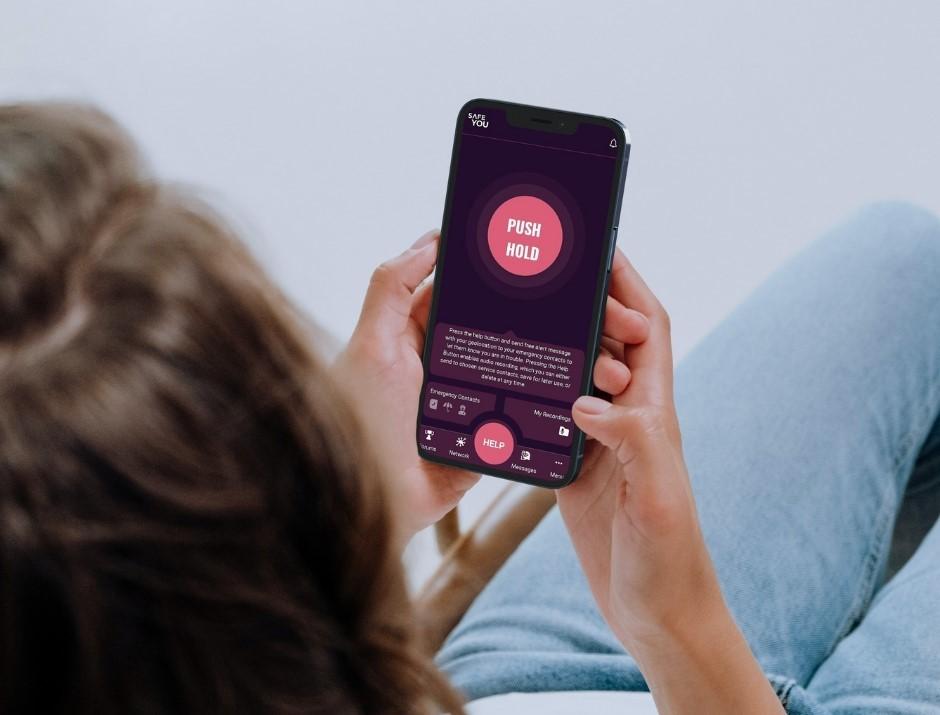Bridging the gender digital divide: A way out of crisis
March 16, 2023

Digital services have provided a lifeline for women and families displaced by the war in Ukraine.
“Women and girls in Somalia still have a choice... The power of digital technology in a crisis context is huge to make this change. We are making women shine.”
Somali academic Dr. Sadyio Siad knows well the impact that conflict and crisis can have on women and girls’ ability to access education. Herself forced to flee Somalia due to conflict in the 1990s, education offered her a path to opportunity and autonomy.
Returning to Somalia in 2011, Dr. Sadyio Siad was determined to make a difference for other women and girls living in conflict. Dr. Sadyio Siad set up STEM Sisters, an initiative which trains and mentors in science, technology, engineering and mathematics. Women and girls from every region of the country can access the digital platform remotely to learn and prepare for the technology job market.

Dr. Sadyio Siad delivers remarks at the 2022 Somali STEM Summit.
In just one year after starting STEM Sister, Dr. Sadyio Siad has helped over 500 hundred women and girls get trained in STEM from all the regions of Somalia. From coding classes, mentorships and scholarships, participants acquire valuable skills that will help them access job markets via a digital platform, improving their livelihoods.
“This is the impact of technology in the life of women and girls. The only way we can do this is through digital education. We have the mindset of taking the ‘no’ and transforming it into ‘knowing’,” said Dr. Sadyio Siad.
As part of the Somali STEM Society, STEM Sisters has benefited from UNDP support, which helped the organization to link with partners from governments and the civil society. The Sister’s initiative has also a focus on training refugees, internally displaced persons and women and girls from marginalized communities.

The STEM Sisters Initiative provides training and mentoring to help Somali women and girls access careers in science, technology, engineering and math.
Driving change in the digital space
In the Asia-Pacific region, UNDP-supported initiative ExtremeLives uses digital technology to challenge gender stereotypes and promote gender empowerment. The video series shares young girls’ perspectives and experiences in dealing with hate speech, marginalization, and inequalities.
Implemented by UNDP and supported by the European Union, the project uses the power of personal testimonies to drive change in the digital space. Artificial Intelligence and behavioural insights methodologies are used to target multiple audiences and gamified formats stimulate stronger audience engagement.
“Extreme Lives extracts first-time insights and looks at behaviours to better inform preventive actions to mitigate the insurgence and spread of violent extremism in South Asia.”Enrico Gaveglia, UNDP Resident Representative in the Maldives
App tackling gender-based violence
Different approaches are needed to tackle the root causes of gender inequalities. In fragile settings and crisis contexts, two in three women experience different forms of gender-based violence.
In Iraq, Armenia and Georgia the digital application SafeYOU is helping to keep women safe. With just one click of the SOS button, women in imminent danger can immediately alert emergency contacts with a SMS message. The application also records its surrounding sounds to generate potential evidence against an aggressor.
60,000 women are already using the platform. Since 2020, over 14,000 women have reported cases of violence and approximately 8,000 have used its networks of psychologists, lawyers and healthcare workers. Artificial intelligence is used by the app to generate data that can inform policies.

With a click of the SOS button on the SafeYOU app, women in imminent danger can immediately alert emergency contacts with a SMS message.
“Analyzing the patterns can help us understand who is at the highest and lowest risk of being abused among our users, and how can we make sure that we prevent these cases”, said Mariam Torosyan, founder of SafeYOU.
SafeYOU is part of UNDP’s BOOST Women Innovators Programme in Europe and Central Asia.
Digital apps are also keeping women safer in Yemen. Gender-based violence against women and girls in the country has increased by 63 percent since conflict began in 2015. The COVID-19 pandemic further exacerbated the issue. To address this, UNDP launched, in partnership with the Government of Japan, a mobile app that maps protection and aid services for gender-based violence survivors.
To provide more targeted support, the app can be refined by geographic area and divides services into several categories including livelihoods, education, psycho-social, legal services, food, and healthcare.
Achieving gender equality
The digital gender gap is a reality in many countries: globally, men are still 21 percent more likely to be online than women. This number increases to 52 percent in least developed countries. In a world of rapid digital transformation, women’s full participation and decision-making in innovation, technological change and digitalization is a pre-requisite to deliver transformative impact and to achieve the 17 Sustainable Development Goals.
UNDP launched its 10 Point Action Agenda bringing together the Gender Equality Strategy and Crisis Offer. The document provides the roadmap to address root causes of gender inequality and drive a transformation of norms and structures to allow a world where no one is left behind. The implementation of the Women, Peace and Security Agenda is at the center of the 10 PAA which puts women across all their diversity, in the lead to advance sustainable peace and development. It also urges UNDP to use innovation, technology, digitalization, behavioural science and financing for development to engage with the complexities that drive inequality and crisis.
Along with its partners, UNDP works to provide better access to digital services that can amplify development solutions, empower women and girls, increase resilience to crisis and to leave no one behind. And if properly enabled, digital technologies are a powerful tool to improve gender equality in crisis and fragile settings.

 Locations
Locations



